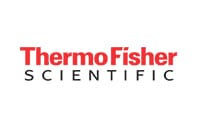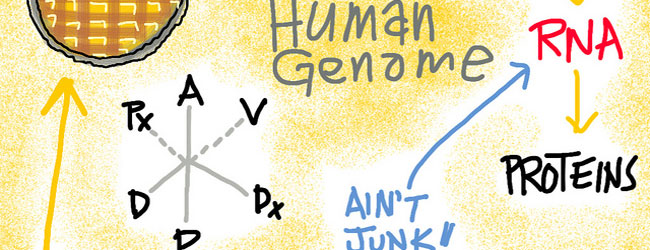An oft-repeated maxim in biological bench science is that any experiment is only as good as its control. A control is an unchanging standard of comparison in an experiment, and an internal control is typically a standard reaction run together with the test reaction in the same reaction mixture. The purpose of an internal control is to minimize the effect of extraneous elements or variables. The use of internal controls increases the accuracy and reliability of the results and is indispensable in high-throughput assays that can be error prone.
The problem with most internal controls is that they are end-point controls. This type of control does tell you whether the test reaction was performed optimally, but they only do so at the end of the experiment. This is less than ideal, particularly in high-throughput sequencing studies that involve costly reagents, and precious (and at times irreplaceable) DNA samples. Ideal internal controls will tell you before you go on to the next step in the process whether the reaction you just performed was successful.
A major drawback in older DNA library prep kits for whole-genome sequencing (WGS) was the lack of in-process feedback in real time. Preparing a library from DNA isolated from fresh or stored tissue samples involves multiple steps where minute quantities of clear transparent liquids are repeatedly dispensed into a large number of small receptacles. The high level of accuracy needed in these delicate and precise maneuvers increases the probability of errors that result in experimental failures. The distinctly colored tracking dyes included in the Invitrogen™ Collibri™ PCR-Free PS DNA Library Prep Kit for Illumina systems and Invitrogen Collibri PS DNA Library Prep Kit for Illumina systems provide visual feedback that allows real-time tracking of the successful mixing of reagents at each step in the library preparation and quantification WGS workflow. The tracking dyes do not require any complex measurements or time-consuming detours because the feedback is visible to the human eye.
Most errors in the WGS workflow arise in steps that involve liquid handling. Even automated liquid handing does not preclude the probability of errors and benefits from the visual feedback offered by colorful tracking dyes. DNA libraries for Illumina HiSeq™ and NovaSeq™ systems are usually prepared in 96-well formats where the use of convenient tracking dyes as internal controls is particularly useful. Errors in liquid handing occur either when wells do not receive the right amount of a liquid reagent or when the freshly added reagent is not uniformly mixed with the solution already in the well, leading to a sub-optimal or failed reaction.
A disparity in the color of a single well can be easily and immediately detected among a large number of samples without any time-consuming measurements or additional testing steps. For example, with the Invitrogen Collibri DNA Library Prep Kit Portfolio, upon addition of the clear and colorless fragmented DNA to the the End Conversion Mastermix, which is a deep shade of aquamarine blue, emergence of an easily detectable visual cue of a light blue solution signals to the investigator successful completion of this step. Next, the light blue sample solution from this step is added to the dual-indexed adaptors, labelled with distinctly yellow tracking dye, which results in a green DNA-Adaptor mix. At any step, the absence of the colorful cue warns the investigator that either a reagent has not been added to the sample or that the reagents have not been mixed thoroughly. This immediate visual cue is easy to detect at a glance even in 96 well plates.
Color discrepancies are a visual cue for investigators to pause, add the required reagent or more thoroughly mix the reagents in the errant sample well. The investigator can then proceed to the next step, confident that the last step has been performed satisfactorily. The distinct cues of vibrant tracking dyes at every stage in the workflow avoid costly missteps and ensures sequencing success.







